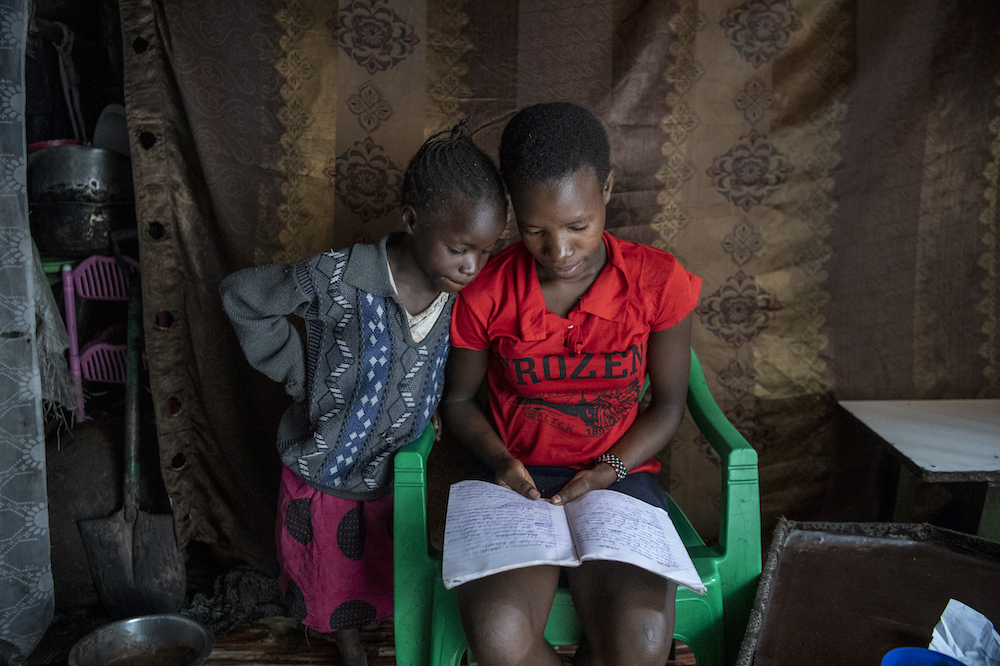
Five things you need to know this week about global education

Right to education, Teachers and learning
Countries have promised to increase their investment in education in the wake of the pandemic - plus the librarian who swaps books for rubbish.
Countries vow to invest more in education
More than 40 countries have committed to increase investment in their education systems to tackle the effects of the pandemic.
Heads of state and education ministers adopted the Paris Declaration on Education this week and promised to use more innovative financing measures and public-private cooperation. They also called for increased international aid for education.
The declaration was agreed at the Global Education Meeting in France. It said leaders are concerned about the Covid-19 crisis threatening hard-won progress towards getting more children into school.
The pandemic has pushed marginalised and vulnerable learners further behind – especially those living in poverty, in remote and rural areas, women and girls, those impacted by crises and conflicts, and children with disabilities.
Last year 1.6 billion children and adolescents were affected by school closures. That included 500 million students who had no access to remote learning.
“The Covid-19 pandemic has come to underscore for everyone around the world the critical importance of education as a global public good,” UNESCO Director-General Audrey Azoulay told the meeting. “If we do not invest in education now, the cost will be much higher for generations to come.”
Unpaid Yemeni teachers forced into street work
More than half of Yemen’s teachers and education personnel who have not been paid since 2016 have been forced to find other sources of income to feed their families.
Some of the 190,000 people affected are working on the streets, according to Save the Children. One teacher called Hana said: “How is it expected for a teacher to go to class and teach students while thinking about ways to feed their own children? Many of us do not even have money to pay for transportation to school.”
More than 2.2 million children are out of school in Yemen after seven years of conflict and about eight million need education support just to continue basic learning.
Save the Children Education Advisor Chiara Moroni said: “The continued disruptions in teachers’ pay will have a critical impact on the education process and would expedite its collapse, harming not only millions of children today but also the future of the country.”
Librarian swaps litter for literacy
WATCH: 📚 Librarian Raden Roro Hendarti drives a mobile library in a village in Indonesia, lending books to children in exchange for trash https://t.co/djpWaGgYeA pic.twitter.com/AiHr5dMXKG
— Reuters Asia (@ReutersAsia) November 9, 2021
A librarian on Indonesia’s Java island is lending books to children in exchange for rubbish to help clean up the environment and encourage them to read more.
Every weekday, Raden Roro Hendarti rides her three-wheeler stacked with books for children in Muntang village to exchange for plastic cups, bags and other waste that she carries back.
She collects about 100kg of waste each week, which is then recycled or sold. She has a stock of 6,000 books to lend and wants to take the mobile service to other areas.
Kevin Alamsyah, an avid 11-year-old reader, scours for waste in the village. He said: “When there is too much trash, our environment will become dirty and it’s not healthy. That’s why I look for trash to borrow a book.”
Investing in girls’ education can tackle AIDS
Leaders have renewed commitments to invest in education, rights and healthcare for girls and young women as a crucial way to address HIV/AIDS in West and Central Africa.
Education Plus – an initiative of several United Nations agencies – was supported at a summit in Senegalof governments, civil society and the UN. It calls for calls for free, quality secondary education for all girls and boys in sub-Saharan Africa by 2025, along with access to sex education and freedom from sexual violence.
Despite progress in girls’ education, adolescent girls and young women aged 15 to 24 in West and Central Africa are twice as likely to acquire HIV as their male peers.
Secondary education offers protection to adolescent girls and young women from HIV, reducing cases by as much as a third to a half. UNAIDS Executive Director Winnie Byanyima said: “The lessons learned from the success in accelerating gender parity in primary education, need to be implemented for secondary education.”
Niger shocked by school fire tragedy
Niger is in mourning after a fire killed at least 25 children aged five and six in classrooms made of wood with straw roofs.
Fourteen others were injured, with five in a critical condition, at a primary school in the town of Maradi. It was the second time this year that a fire has killed students in their classrooms in the West African country. Twenty preschool children died in April in the capital Niamey.
The Niger Teachers’ Union said it had previously alerted authorities to the dangers of addressing shortages of school buildings by constructing thousands of straw and wood sheds to serve as classrooms.
President Mohamed Bazoum recently promised to replace the wooden structures. The government has now banned preschools from being held in buildings with straw roofs.
More news

